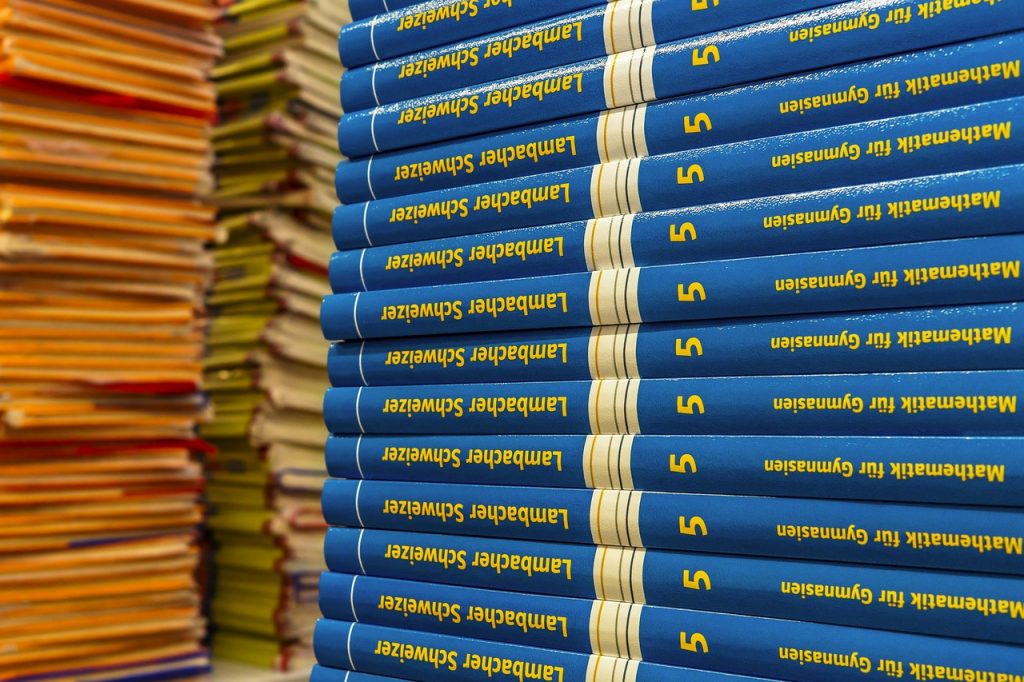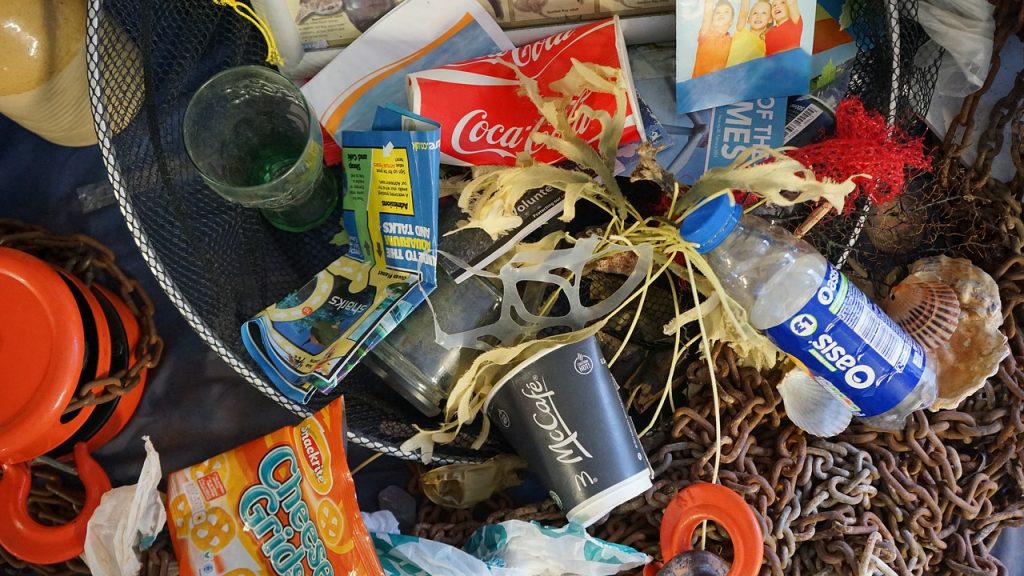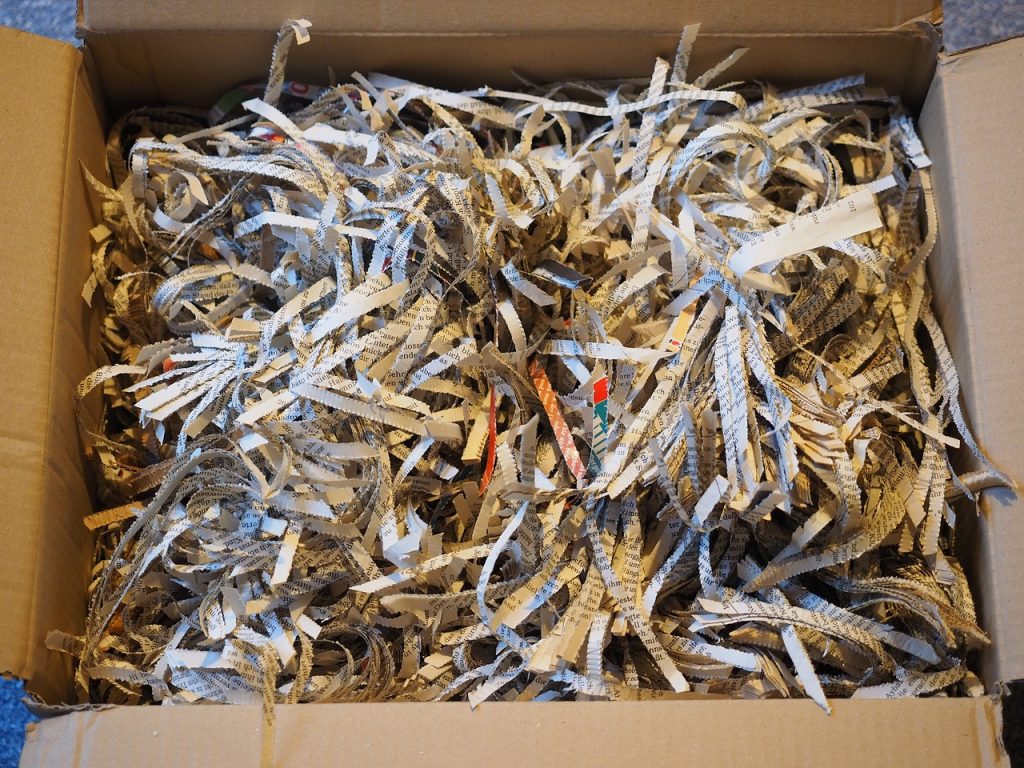- Identify the books that are no longer needed or desired.
- Remove the covers and bindings before recycling the pages.
- Consider giving the books a second life by donating them to charities, libraries, or schools.
- Explore digital or ebook alternatives to reduce physical waste.
- Find local resources to recycle your old books, such as local libraries, schools, recycling centers, and thrift stores.
- Trade or sell your old books to boost your local economy.
- Repurpose old books into creative art installations or other uses.
- Compost your old books to turn them into soil enrichment.
Learn How to Recycle Books for Sustainable Living
As individuals increasingly discover the importance of sustainable living, many often ask “how to recycle” various items in their homes, books being one of them. So, “how to recycle books,” you may ask? How do we ensure our beloved textbooks and novels don’t contribute to the alarming rate of environmental degradation? Recycling them is the answer, and the process isn’t as daunting as you may think.
Learning how to recycle old books is a beneficial skill, both for the environment and for decluttering your home. Many people incorrectly assume that because a book is made of paper, it can be readily recycled. However, the glue used for bookbinding often poses challenges in the recycling process. But don’t worry, there are numerous ways to recycle your old books effectively.
One straightforward method on how to recycle books involves removing the covers and bindings before recycling the pages. The process becomes trickier when considering how to recycle hardcover books. The rigid covers are typically made from untreated paperboard and are recyclable. The pages within are also recyclable, but often, the adhesive that binds the pages to the cover is not. Therefore, when learning how to recycle hardcover books, the pages and binding need to be separated before recycling.
In contrast to traditional recycling, another way to recycle is by giving your beloved books a second life in someone else’s hands. Various charities, libraries, and schools often appreciate book donations, so recycling books can also mean passing them on.
Still, if you’re passionate about reducing waste and hoping to incorporate recycling books into your lifestyle, consider exploring digital or ebook alternatives. Just imagine, you can have an entire library in the palm of your hand without leaving any physical environmental footprint – now that’s the ultimate way to recycle!
Adopting a ”recycle, recycle, recycle” mantra will lead to a significant difference in your overall carbon footprint. By showing a commitment to sustainable living and becoming part of the recycling drive, you’ll not only reduce household waste but also promote the reuse of valuable resources. Recycling, recycling, and yet more recycling can be the difference between a sustainable future and a polluted one. Every recycled book and textbook is a step towards healthier environments and communities.
So, if you’ve ever found yourself pondering how to recycle, specifically how to recycle books, now you’re equipped with practical tips and strategies. By contributing to the recycling movement, being aware of the power of recycled materials, and pushing for a more sustainable lifestyle, you’re shaping a greener future for generations to come.
Discover Easy and Local Ways to Recycle Books
Taking steps towards a green lifestyle isn’t as difficult as you might think, particularly when it involves finding local ways to recycle books. In a world where everything is going digital, it’s critical to include books, especially textbooks, in your recycling efforts. Having a notable place in our lives, they can be recyclable, making it impactful to cut down on waste and contribute to sustainable living.
So, how can you find local resources to recycle your old books? Well, to begin with, many local libraries have programs aimed at book recycling. They not only accept donations but also host used book sales and even distribute them to those who need them. It’s a win-win situation: you keep your old books out of the landfill, and you’re helping your local library and community.
Another great starting point could be your local schools and colleges. Many of them gladly welcome book donations for their libraries or even for classrooms. Not to mention that donating textbooks can greatly benefit students who might not be able to afford new ones.
But what if your books are not in the best condition? Are they still recyclable? The answer is yes, but in a different way. Most local recycling centers receive mixed paper recycling, which can include damaged books. Before you toss them in the recycling bin, though, it’s worth finding out if the center accepts hardcover books, as some may only recycle soft cover ones.
Local thrift stores are another option for giving your books a second life. Not only would you be supporting a local business, but you’re also providing an affordable resource for fellow book lovers in your community. Check around to find the ones that accept book donations.
Lastly, don’t forget to explore local nonprofits and shelters. Many of them would happily accept book donations for their clients and families. Sharing the love of reading while lessening waste—it doesn’t get much greener than that!
Transitioning to a sustainable lifestyle isn’t always about big, sweeping changes. Sometimes, it’s the small, local acts like recycling your books that can have the biggest impact. Remember, each book saved from the landfill is another step towards a greener, more sustainable world. So, why wait? Start finding your local resources for book recycling today. After all, going green should also include going local.
Recycling Textbooks: From Trash to Trade
As part of our commitment to sustainable living, we’ve been discussing methods to recycle books and textbooks. This section will explore how your old textbooks, which may seem like trash, can be transformed into a useful trade. Textbook recycling can go a long way in boosting our conservation efforts and promoting eco-friendly practices. While textbooks represent a wealth of knowledge, they can also pile up over time, creating clutter and ultimately ending up as waste. But by recycling instead, we extend the duration of their use and keep them out of our already overburdened landfills.
One way to recycle textbooks, which is both simple and local, is to trade them in your town. Many communities have local recycling centers where one could donate used textbooks. Some public libraries also run recycling programs for used books to expand their collection or raise funds. Trading textbooks can be a great way to help other people in your community while fostering a culture of recycling.
While we’ve mentioned recycling centers and libraries, there are a number of other ways to recycle books. Online platforms like Chegg, and even Facebook Marketplace, are great options for recycling textbooks virtually. Selling your used books can not only garner you some income, it also ensures they get a new life with someone else. Indeed, one person’s trash might be a valuable resource for another, particularly for students on a budget.
Furthermore, if you’re looking to sell your used textbooks but they’re not in a condition for resale, you could still recycle them. Several online platforms allow you to sell books for recycling. These platforms then recycle them responsibly – which is a better option than contributing to more landfill trash.
Moving forward, let’s make a collective pledge to recycle our textbooks. It’s about recycling, recycling, and recycling! Doing so not only helps to tidy our living spaces, it also makes a great contribution to the environment. When we recycle, we reduce waste, conserve energy, and contribute to our planet’s sustainability. So next time you wonder what to do with an old textbook, remember, it’s a potential trade, not trash!
Boost Your Local Economy: Trade and Sell Your Old Books
Did you know you can boost your local economy by learning to trade and sell your old books? That’s right! You don’t just help the environment by recycling your well-read novels, textbooks, and other literature, but you’re also contributing actively to the local economy. Selling old books, particularly recyclable ones, that are still in reasonably good condition or have valuable content can create a helpful revenue stream for you and those in your community.
The process is straightforward. The first requirement is to find the books you wish to sell or trade. These could range from personal collections, books in your office that are no longer in use, or some old textbooks you’ve kept since your school days. With these in your possession, the next phase involves finding the right outlets to sell or trade these materials. Local book shops, second-hand stores, and even online platforms can serve as effective trading places. Others may find community markets or garage sales to be more suitable options. All these methods can keep the books in circulation and reduce the demand for new ones, contributing to a sustainable living culture.
Recycling or selling your old books is more than an eco-friendly practice; it’s an act that stimulates the local economy. When you sell or trade your previously owned material, you invigorate the local market, creating a vibrant commerce exchange. Each transaction, no matter how small, adds value to the local economy.
Don’t worry if your books seem old or outdated. You may just find interested buyers who see value in what you consider junk. Remember, old textbooks often contain historical data and theories that are still valid and can be a great educational resource. Moreover, old-fashioned novels or books with a vintage feel have a unique charm sought after by many book lovers.
In conclusion, don’t just recycle your books; sell, sell, and sell them where possible! It’s an easy way to contribute to both environmental sustainability and local economic growth. Every book recycled is a step forward toward a sustainable future.
Now that you’ve got the know-how to ensure your good reads continue to find homes and contribute to the local market, why not get started? Find, recycle, trade, or sell your books today. Not only are you being environmentally conscious, but you’re also proactively boosting your local economy. Who knew recycled books could be such invaluable hidden treasures?
Recycle, Redo, and Reuse: How to Repurpose Books
If you’re wondering how to recycle books, it’s not as complicated as it can seem initially. The key lies in a three-step process; recycle, redo, and reuse. In a world where sustainable living is of utmost importance, it’s no surprise that this approach has gained an enormous amount of attention. In essence, it offers an effective way to repurpose old books, including those hardcovers that have seen better days.
To start with, it’s time to find those books that are no longer needed or desired. It could be anything from novels that have already been read, textbooks that have served their purpose, or hardcover books that take up too much space. The how to recycle books guide always begins with the essential task – to sort and find. It’s important to keep in mind that recycling isn’t about getting rid of old books; it’s about giving them a second life.
Once the unnecessary items are detected, the actual process of how to recycle old books begins. Local recycling centers usually have different guidelines, depending on the area. Some may ask for removal of hardcovers before recycling, due to the glue used in the binding. Explore local recycling options, and follow the specifications they provide. Every recycled book matters, but it’s important to do it correctly to make the most of this effort.
The next step is to find ways to repurpose these books. Instead of sending them off directly to the recycle disposal, why not give them a second chance? Ideas range from creating creative art installations to turning pages into wallpaper. The goal here is to recycle as much of the book as possible before recycling what’s left. You’d be amazed at what recycled books can be reused for!
If repurposing isn’t an option, think about donating. Libraries, literacy programs, schools, and even prisons often welcome book donations. It’s a great way to give back to the community, and recycle at the same time. For those looking to gain extra cash, selling old books is another option. Various websites and local shops might be willing to put a price on the books you’re ready to part with. It doesn’t only assist in recycling but also helps to boost your local economy.
Sustainable living is a journey, and every step counts. Learning how to recycle hardcover books and other types of literature plays a significant part in this. So, next time you find an old book lying around, don’t just throw it away; give it another life. Recycle, redo and reuse, and turn the page to a more sustainable future.
Composting Books: Turning Your Unwanted Books Into Soil Enrichment
If you’ve been diligently following our guide titled, “How to Recycle Books: Guide for Recycling Textbooks and Books for Sustainable Living”, you’d have discovered useful and effective ways to reduce, reuse, and recycle those old books piling up in your basement or attic. We’ve discussed how you can trade and sell your old books to contribute to your local economy, repurpose your books in creative ways, and even recycle textbooks. Now, let’s dig in a bit deeper (pun intended) and venture into the world of composting books.
Composting is not only about food waste or grass clippings. Did you know that you can turn your unwanted books into soil enrichment? Yes, those old, tatty books that you’ve read over and over again can serve a new purpose — as compost!
Books, especially those printed on paper and not coated with plastic, are an excellent source of carbon, an essential ingredient for any effective compost pile. And don’t forget, the ink used in these books is usually soy-based, which is completely safe for your garden. The first step in composting your books is tearing them up into small pieces. The smaller, the better, as this increases the surface area for microorganisms to work on. This is one of the easiest methods to recycle books and promote sustainable living.
Before you start worrying about the words on the paper, let’s address that concern. Most books use black ink which is carbon-based and safe for composting. The concern lies with books with a lot of colored pictures, as some colors contain unhealthy heavy metals. But don’t fret, as long as your pile is mostly paper and only a small percentage of colored inks, you should be just fine.
Now, the chances are, you’ve got more books than you’d like to admit. books upon books, steadily growing in number. If that’s the case, you might be wondering if you can compost all of these – yes, you can! But remember, a healthy compost pile is all about balance. A good rule of thumb is to add one part green material (like vegetable scraps) for every three parts brown material (like books).
Why not start making use of those surplus books for your compost pile today? By composting books, you’re keeping them out of the landfill, reducing waste, and creating nutritious soil for your plants. That’s three wins in one! So go ahead, pick up those books. Your garden will thank you.
Crafts and Composting: Fun Projects with Recycled Books
Yes, you read it right; you can bring your old, discarded books back to life! Go green with recycling and more specifically, composting books. It’s a concept that may sound unusual, but waste is a big issue, and despite recycling initiatives, not everyone realizes you can recycle books. Composting is one of the great ways to contribute to waste reduction efforts. By turning your unwanted books into compost, you’re contributing to sustainable living and reducing your waste footprint.
Composting books and creating craft projects with them is fun and an excellent way to spend some quality time with your children or friends while educating them about sustainable living. You’re probably wondering how to get started with composting books. Some books due to the binding glue or covers might not be suitable for this process; however, most paperback books are usually safe for composting. The paper is organic matter and thus decomposes over time, enriching the soil in your backyard or garden. Rip the pages into smaller pieces and add them to your compost pile. Just make sure to remove any glossy or color printed pages!
On the other hand, crafts with recycled books is another fantastic activity for those who aren’t afraid to get creative. You can transform books into intricate sculptures, bookmarks, origami, and even home decor. Your old textbooks could be turned into picture frames or a vintage-style clock. Everyone will be amazed at your DIY book crafts!
Boost your local economy by trading and selling your old books. Keep the cycle going. Books help novel writers, publishers to earn a living, and keep bookstores, secondhand stores, and recycling centers running. It’s clear how generous the contributions of books to the economy are. But, did you know that we could extend this cycle even further? Instead of simply trading in your old books, why not adapt to a more sustainable method of recycling?
We all know recycling is good for the environment, but recycling books is food for the soul – and the soil. By composting books, we give a new purpose to the unwanted books that lie around our houses. We are zeroing in on the root of the waste problem while simultaneously promoting sustainability and eco-consciousness. Starting the habit of recycling books, be it through trade, sale, crafts, or composting, is an enlightening journey towards sustainable living.
To sum up, it’s time to recycle, redo, and reuse your reading material and do your part in lowering waste and contributing to sustainable living. Remember, your unwanted books have the potential to be more than just book waste. Go green, compost those old books, and create fun recycled book crafts today! Your books, be they textbooks or otherwise, can contribute significantly to eco-friendly practices.




